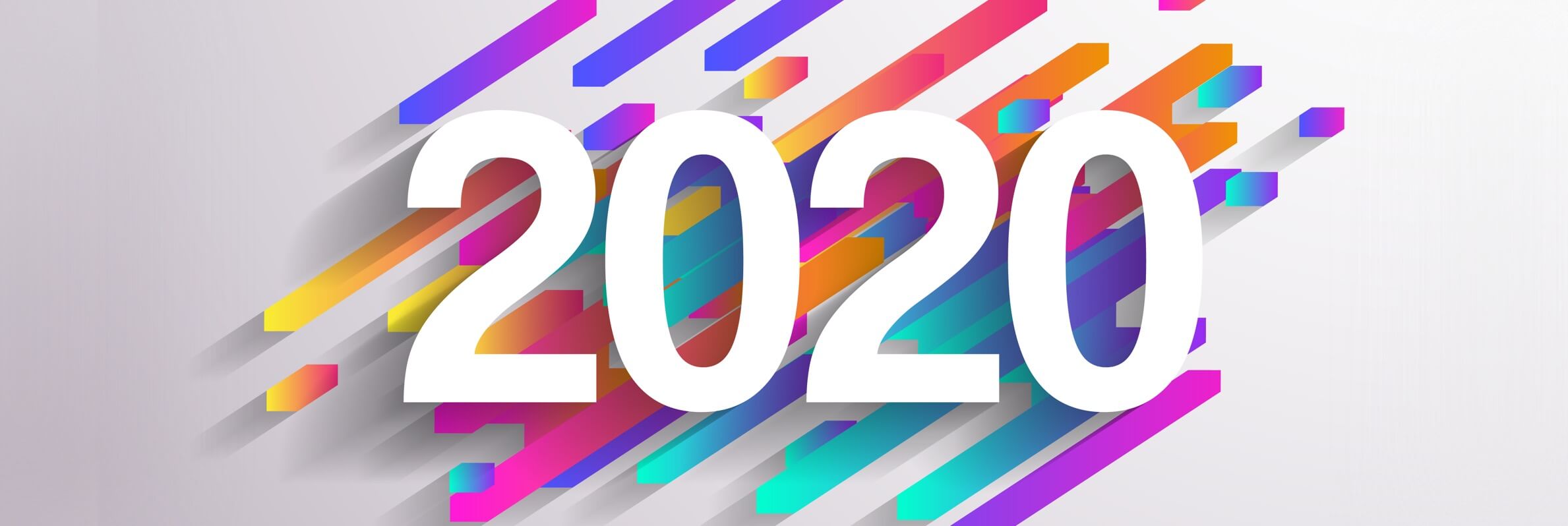PPC and AI: the rise of the automaton
Google announced in 2018 that it had achieved quantum supremacy, developing a computer that was reportedly able to perform a calculation in 200 seconds that would have taken the world’s most powerful supercomputer 10,000 years
While this sounds impressive, it's not immediately clear how this affects your digital marketing. But this investment reveals Google's focus: advanced computing power.
In fact, our Performance Search Director, Chris Gedge, foresees a time when automation almost entirely dominates PPC campaigns:

Automation is set to have a massive impact on PPC. Google is claiming to have cracked the first-ever quantum computer, which could mean their processing power increases exponentially in the coming years.
I expect most PPC campaigns to be fully bid automated, with semi-automated ad copy creation and semi-automated keyword targeting. Eventually, I see most PPC campaigns to be fully automated with a human mostly setting up campaign structure and strategy.
Chris Gedge, Selesti Performance Search Director
Facebook is also heading down the budget management route; in fact, we suspect they might soon switch off the option for Budget Optimisation. 2020 will almost certainly be the year that automated PPC bidding begins to rule the roost!
How to take advantage of this trend
- Start experimenting with automated bidding; does it yield better results?
- Invest time in strategy training
- Don't neglect automated bidding for PPC channels other than Google
Losing your head over web design
Traditionally, the frontend (the part of your website that the public sees) and the backend (the part your team uses) have been hosted on the same platform. This has led to some platforms that are great for a well-designed frontend, and some that offer an easy-to-use backend, but few that offer both.
But Ben Jackson, Technical Director at Damn Fine, thinks that 2020 will see the balancing act become easier: using different platforms for your frontend and backend.

Traditionally, CMS platforms such as WordPress have leaned heavily towards giving creators the power to manage and publish their content freely. But this often comes at the expense of the design and performance of the website. Thankfully, we're now seeing more and more services spring up that offer an alternative: a headless approach.
‘Headless’ denotes a decoupling of the presentation of the content and the management of it. This creates an environment that allows creators to create and publish content whilst maintaining beautiful and high-performing design integrity.
The rate of adoption has been helped by many established platforms offering a headless option such as e-commerce platforms like Magento and now even WordPress. The desire and expectation for fast beautiful sites is only going to accelerate and we expect 2020 to really cement this approach as the gold standard.
Ben Jackson, Damn Fine Technical Director
A headless approach might sound like it offers the best of both worlds, but it won't be suitable for everyone; while all-in-one platforms like WordPress don't always need masses of development expertise, decoupling your CMS from your frontend will likely require either an in-house developer, a freelancer, or an agency to take care of the frontend.
Yet the benefits could potentially supercharge the user experience (UX) of your website, boosting conversions, and save time for your creative team and make them more productive. These potential benefits mean that a headless approach to your web design isn't something you can afford to ignore.
How to take advantage of this trend
- Find out if your web platforms can support a headless approach
- If not, consider migrating to a different platform; many popular platforms like WordPress and Magento both support a headless approach
- If you're not sure you have enough in-house developer expertise, speak to freelancers or agencies about designing your frontend
SEO vs Google?
If you've ever heard an SEO expert grumbling that Google hates SEO experts, you might think this one is old hat. But 2019 has seen Google push even further into the Search Engine Result Pages (SERPs) and featured snippets have led to a sharp rise in no-click searches (searches where an enquiry is answered on the SERP itself, rather than requiring a click through to a webpage).
iEva Zelca, Head of Partnerships at Accuranker, foresees the battle for SERP real estate intensifying in 2020.

With Google's new BERT algorithm having an impact on 10% of queries in search results as well as featured snippet results, the competition to own the SERPs will reach new heights in 2020. The good news is that Google is constantly adding new SERP features which present a huge opportunity to own more space on the SERP. Expect to see smarter campaigns driven by keywords that not only bring traffic but are also optimised to convert and make the most of shrinking SERP real estate.
iEva Zelca, Accuranker Head of Partnerships
With Google rolling out features that actively encourage users not to click through to websites, you might be forgiven for thinking that 2020 is set to be the showdown between Google and SEO experts. But our own SEO expert isn't so sure.

Google isn't just moving into the SERPs. It's also rolling out features that could potentially erode brand awareness & topical authority for businesses, such as stripping URLs for the SERPs. All of this points towards Google being very comfortable moving into different verticals and shutting out original publishers in 2020.
That said, Google has also been a lot more proactive about community engagement; Google appears to be doing more to address common challenges faced by SEOs and Webmasters.
Brendan Bennett, Selesti SEO Account Manager
How to take advantage of this trend
- Maximise opportunities to dominate the SERPs, such as Google My Business
- Target featured snippets
- Don't be afraid of no-click searches; your appearance in a featured snippet can still build trust with customers
The end of link-building?
Link-building has been a vital part of SEO since the early days of the Internet. Algorithms have assumed a website must be useful if there are lots of links pointing towards it and rewarded such websites with better placement in the SERPs.
But Carrie Rose of Rise at Seven thinks that might be about to change. In fact, she thinks that SEO specialists in 2020 will need to start thinking more like brand marketers.

Creativity within search is going to be BIG in 2020 - pushing brand through creative campaigns that land links and coverage naturally. Media placements will be seen as much more valuable than they are today. It will become less about the link and the 'link juice' it passes and more about how content encourages further interaction with the brand through different channels.
There's great success to be had in jumping on a trending topic and putting a client at the centre of it. We've seen thousands of people visit a site as a result of digital PR activity despite not having a link. It was more than just a link-building exercise; it was a brand-building exercise which landed links.
Link building isn't dead - it's alive more than ever. SEOs just need to start thinking bigger, cross channel and collaboratively to move the needle with their outreach tactics.
Carrie Rose, Rise at Seven Creative Director
We agree with Carrie that link-building isn't dead. Our own evaluation of Google found that the search giant continues to place value in both the quality and quantity of links pointing to your website. In fact, our Senior Outreach Manager, Jordan Wilson, believes that link-building is a crucial pillar of your digital marketing strategy; you just need to make sure that your plan is built on multiple channels that all work together.

Focussing on a multichannel approach is a win-win situation. Whether that's opening blog pieces up to social commentary, user-generated content pieces, working with influencers and experts to provide guest content, or putting paid promotions behind content pieces - collaborative campaigns work best.
2020 will be the year when brands start to realise it isn't enough to build links for the sake of it. It’s vital to think about the bigger picture and to create content with a purpose and a story in mind. It's the only way to generate brand awareness, coverage and links!
Jordan Wilson, Selesti Senior Outreach Manager
How to take advantage of this trend
- Don't stop your link-building campaign! Instead, make sure that you're building the right links from the right websites
- Make sure that your link-building isn't happening in a vacuum; ensure it goes hand-in with your other marketing efforts
- Think like a PR, act like an SEO
Dark social media and compliance
Opinions about social media are changing, and that means how we use them for digital marketing needs to change too. More and more people have concerns over how social media channels use the data they hold and, perhaps more importantly, how other parties can manipulate that data.
As a result, we predict that 2020 will be the year that social media strategies are forced to change. Our Social Media Strategist, Louie Watts, offers some warnings for organisations relying on traditional approaches to social media.

Digital marketers have been talking for a few years about “dark social”: the areas of social media that aren’t public, such as groups or messaging apps. But 2020 will be the year when you’ll need to stop talking about them and start including them in your strategies.
Users are more conscious of their social media footprint, which is supercharging the shift to more private 1-2-1 or 1-2-group conversations in apps like WhatsApp and Facebook Messenger. According to Global Index, 63% of consumers are sharing information or content through private messaging apps.
So far, it’s been possible to ignore this shift and still see success. 2020 will be the year when that changes. You can’t solely focus on public social media channels anymore; if you don’t want to be left behind, your strategy will need to account for channels like Whatsapp or Messenger as well.
Louie Watts, Selesti Social Media Strategist
And there's another reason to change your approach to social media: the question of compliance and consent. Ned Poulter, CEO & Founder of Pole Star Digital, thinks this is going to be a big issue in 2020.

I think that 2020 will see some major changes when it comes to compliance for digital marketing practices. In 2018, GDPR already rocked the foundations of many spurious business models that were giving genuine, talented digital marketers a bad rep.
It was a noticeable and necessary change that made many online advertising platforms not only sit up and listen, but also adapt their tools to account for the part they had to play in promoting good data practices. It wasn't, however, 'enough' for many, and a lot of questions are still left unanswered.
While Facebook will continue to allow political advertising (of course they will!) Twitter has at the tail end of 2019 said that it will not. In my opinion, 2020 will see this stretch further, with compliance and consent take centre stage, and many having to shift their business models to accommodate for this.
Ned Poulter, Pole Star Digital CEO & Founder
Social media channels have updated their practices in the wake of GDPR, and some, like Twitter, are even proactively stepping back from certain advertising practices to stay ahead of regulators and law-makers.
But don't wait for social media channels to decide what best practice should be. Going the extra mile towards compliance and consent will go a long way to boosting the trust both existing and potential customers place in your brand!
How to take advantage of this trend
- Look into ways to take advantage of "dark social" opportunities; think about groups, Whatsapp and Messenger
- Go the extra mile to ensure you're collecting consent, and complying with rules and regulations
- Make transparency your mantra; even as you step into "dark social", don't pretend to be something you're not
Personalisation vs privacy
Concerns over privacy aren't restricted to social media; users are becoming increasingly aware of how their data is being used by companies like Google, and how organisations use cookies to follow them around the Internet.
But the personalisation of the Internet relies on these practices, meaning that there's a growing conflict between personalisation and privacy. Louise Gerrard, one of our SEO Account Managers, foresees a need to accommodate two disparate types of Internet user in 2020.

Personalisation is getting smarter and smarter, which has the potential to boost profits for business and deliver a personalised experience for the user. But 2020 will also be a record-breaking year for search engines such as DuckDuckGo, which values its users' privacy.
I suspect we’ll see the beginnings of a polarised market in Internet users in 2020: one camp will expect an extremely personalised experience, while the other will want to remain anonymous as they browse the web.
Louise Gerrard, Selesti SEO Account Manager
This means that you'll need to be aware that some of your customers will object to the sort of targetted marketing you might be used to using,
You'll also need to earn your use of sensitive information. For example, don't use targeted advertising to deliver a generic message; deliver a personalised experience that provides real value to your customers and your prospects.
How to take advantage of this trend
- Make sure users can opt-out of targeting and that their data can be easily deleted (if reasonable)
- Use your data to offer a superior, personalised experience that sells itself
- Embrace transparency; make it clear to your customers how you're using their data, but also what benefits that offers them (and how to opt-out if they want to)
A spotlight on creatives
If you want a competitive edge over your competitors, take advantage of these emerging trends. But you need the right people to make them work.
Ultimately, these trends are tools. You can lower your PPC costs with automation, maximise your SERP real estate, and lead the way on social transparency. But without creative campaigns that utilise these tools and provide value to your customers, your marketing efforts won't deliver the results your organisation deserves.
That's why, for our Group CEO, the most important trend of 2020 will be a renewed emphasis on the creatives behind your campaigns.

All of the exciting developments in digital don't take away the fact that organisations need smart people to come up with creative campaigns that centre around delivering value to their target customers. Back to pens and paper for this one to be truly effective!
Ollie Blackmore, Selesti Group CEO
If you want to know more about what to expect from digital marketing in 2020, or if there's something you want to know about that we haven't covered here, get in touch with one of our team; they'll be more than happy to help you!


